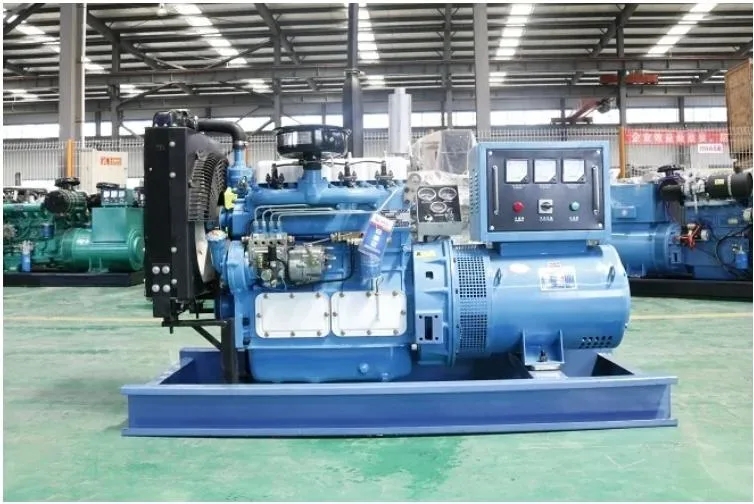Introduction
Construction projects require a reliable and constant source of power to operate various equipment and machinery on-site. While grid power may not always be available or sufficient, diesel generators have become a popular choice for providing the necessary power supply. In this article, we will explore the importance of diesel generators in construction projects, their key features, benefits, challenges, and best practices for their usage.
Importance of Diesel Generators in Construction Projects
Diesel generators play a crucial role in construction projects by providing a reliable source of power for various applications. 75KW Diesel Generator For Sale are known for their robustness, efficiency, and ability to deliver high power output, making them ideal for powering heavy machinery and equipment commonly used in construction sites. From operating power tools to running lighting systems, diesel generators are indispensable for ensuring uninterrupted work progress on construction sites.
Key Features of Diesel Generators for Construction Projects
1. Power Output: Diesel generators are capable of providing high power output, making them suitable for running heavy equipment and machinery on construction sites. Their power capacity can range from a few kilowatts to several megawatts, depending on the size and model of the generator.
2. Durability: Diesel generators are known for their durability and reliability, making them well-suited for the demanding conditions of construction sites. They are designed to withstand rough handling, extreme weather conditions, and continuous operation without compromising performance.
3. Fuel Efficiency: Diesel generators are more fuel-efficient compared to gasoline generators, making them a cost-effective option for long-term use in construction projects. Diesel fuel is also more readily available and has a longer shelf life, ensuring a continuous power supply without frequent refueling.
4. Portability: Many diesel generators for construction projects are designed to be portable, allowing for easy transportation between different job sites. This portability is essential for construction companies that need to move their equipment and machinery frequently.

5. Low Maintenance: Diesel generators require minimal maintenance compared to other types of generators, reducing downtime and operational costs for construction projects. Regular maintenance checks and servicing can help prolong the lifespan of the generator and ensure optimal performance.
Benefits of Using Diesel Generators in Construction Projects
1. Reliability: Diesel generators are known for their reliability and consistent performance, ensuring a stable power supply for construction activities. This reliability is crucial for preventing downtime and delays in project timelines.
2. Versatility: Diesel generators can power a wide range of equipment and machinery used in construction projects, including cranes, excavators, pumps, compressors, and lighting systems. Their versatility makes them a valuable asset on construction sites with diverse power requirements.
3. Cost-Effectiveness: While diesel generators may have a higher upfront cost compared to other types of generators, their fuel efficiency and low maintenance requirements make them a cost-effective choice in the long run. Construction companies can save on operational costs by using diesel generators for their power needs.
4. Independence: Diesel generators provide construction companies with independence from grid power sources, allowing them to operate in remote or off-grid locations without relying on external electricity supply. This independence is particularly beneficial for construction projects in rural or undeveloped areas.
Challenges of Using Diesel Generators in Construction Projects
1. Noise Pollution: Diesel generators can be noisy during operation, which can be a concern for construction sites located in residential or noise-sensitive areas. Soundproof enclosures or scheduling noisy activities during daytime hours can help mitigate this issue.
2. Emissions: Diesel generators produce emissions such as carbon monoxide, nitrogen oxides, and particulate matter, which can contribute to air pollution and pose health risks to workers and nearby residents. Proper ventilation and emission control measures are essential to address this challenge.
3. Fuel Storage: Storing diesel fuel on construction sites can pose safety risks due to the flammability and combustibility of the fuel. Adequate storage facilities, proper handling procedures, and compliance with safety regulations are necessary to prevent accidents and ensure worker safety.
Best Practices for Using Diesel Generators in Construction Projects
1. Proper Sizing: It is essential to select a diesel generator with the appropriate power output to meet the specific needs of the construction project. Undersized generators may not be able to power all the equipment, leading to inefficient operation, while oversized generators can result in higher fuel consumption and unnecessary costs.
2. Regular Maintenance: Scheduled maintenance checks and servicing are crucial for ensuring the optimal performance and longevity of diesel generators. Routine inspections of fuel filters, oil levels, coolant systems, and electrical components can help prevent breakdowns and costly repairs.
3. Fuel Management: Proper fuel management is essential for maintaining a continuous power supply on construction sites. Monitoring fuel levels, refueling in a timely manner, and using clean and high-quality diesel fuel can prevent unexpected shutdowns and equipment damage.
4. Emission Control: Implementing emission control measures such as exhaust systems, catalytic converters, and particulate filters can help reduce the environmental impact of diesel generators on construction sites. Compliance with emission regulations and best practices is essential for minimizing air pollution and protecting worker health.
Conclusion
Diesel generators are indispensable for powering construction projects, providing a reliable and efficient source of electricity for various applications. Their durability, versatility, and cost-effectiveness make them a popular choice among construction companies looking to meet their power requirements on-site. While challenges such as noise pollution, emissions, and fuel storage need to be addressed, adopting best practices for using diesel generators can help maximize their benefits and minimize their drawbacks in construction projects. By understanding the importance of diesel generators, leveraging their key features, and implementing best practices for their usage, construction companies can ensure uninterrupted power supply and smooth operations on their job sites.
